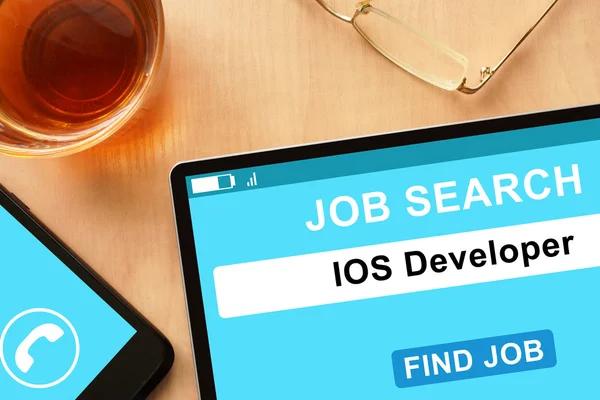AI can be used to sift through resumes and applicants to find possible matches. If it’s utilized too much, it may ignore someone who doesn’t meet a preset mold.
The bias can also be seen in the screening, sourcing and selection phases of the hiring process. Reliable recruitment demands ethics-based considerations, clear communication and strong data protection measures.
Benefits
The AI technology enhances the process of recruiting by automating repetitive tasks, allowing recruiters more time to focus on more valuable tasks. It also reduces costs for hiring, boost efficiency and identify the best candidates for a particular role. It also enhances the overall experience for candidates and make it more friendly for users. For example, a chatbot will be able to answer questions from candidates in real-time and even schedule interviews. Automated feedback systems provide candidates with more meaningful and constructive evaluations that can help them to improve their performance at future interviews for jobs.
AI can be utilized to eliminate any unintentional biases in the process of recruiting. AI, unlike recruiters, is impartial, and doesn’t consider race, age, or gender when evaluating applicants. This allows companies to recruit more diverse and inclusive teams.
In addition, AI-based matchmaking tools could save the recruiters time in reducing the number of candidates selected for interviews and ensuring they are able to meet the requirements of the job. This results in better hiring and lower turnover. Unilever For instance, is credited by its AI-based recruitment tool with saving it more than 100,000 hours a year. AI is able to match skills with job requirements, ensuring that the new employees are a good fit for the company’s culture and requirements. This improves the likelihood that they’ll stay for a longer period of time and help contribute to organizational expansion.
Recruitment Technology Trends
There are numerous platforms and tools available to assist recruiters in locating the best talent. AI is becoming more popular in recruitment due to its ability to streamline multiple processes, such as screen candidates for resumes, finding them and scheduling interviews, as well search engine tracking. AI offers innovative ways of engaging with and nurturing candidates.
Examples include chatbots, video interviews and predictive analytics. These tools can automate repetitive tasks, allow recruiters to reach out to candidates across different channels, and provide more personalized communication that enhances candidate engagement and experience.
AI integration with new technologies could revolutionize the hiring process. The combination of AI with blockchain technology, like, can speed up and provide more secure credential validation, reducing fraud risk. Combining AI with VR could create immersive experiences for recruiting that provide applicants with a taste of the work environment and job before submitting an application. In addition, integrating AI with other platforms could further streamline workflows by automating tasks like writing job descriptions and composing candidate profiles. But while AI has the potential to improve the process of hiring efficient, it’s important for HR managers to keep including human input for accuracy as well as a strong strategic fit. Relying too heavily on AI which is too much could lead to unfounded expectations about its capabilities and a misalignment of goals and capabilities to attract candidates.
Algorithmic Bias in Hiring
The application of AI in recruitment brings countless advantages, but it’s not without its risks. One of the main concerns is that AI algorithms may be unintentionally biased, resulting in discriminatory hiring choices. This is known as algorithmic bias. It occurs in the case where the design of an AI system influences its decision-making. This can be caused by various variables, including individual biases between engineers or methods for data collection that are not able to capture certain demographics.
If an AI system is taught to look through CVs of former employees for instance it is able to eliminate any information associated with females. It could be as easy as having a name that is feminine, or being employed at a college for women. It can be the result of using a dataset that is overly representative of privileged, accessible groups.
The risk of bias when recruiting AI tools can be minimized through proper supervision. Businesses should establish a team to monitor the usage of AI during their hiring process and be ready to handle any complaints that occur.
It’s also crucial to understand that AI shouldn’t be used as an antidiscrimination tool- the final hiring decision should be taken by human beings. Any form of bias is unprofessional and could harm an organization’s image.
AI Recruitment Challenges
AI recruitment solutions can analyze hundreds of applications in just a fraction of the time human beings need to perform the task manually. It’s easier to locate top talent, select candidates and interact with them. Additionally, some AI tools for recruiting can assist in scheduling meetings as well as conducting interviews in the first round. Automating these processes, candidates receive non-stop support from the start of their journey to becoming a full-time employee.
It’s crucial that CHROs and recruiters know the risks of AI. They can range viec lam da nang from biases based on algorithms to privacy concerns. It is best to work with an RPO who is knowledgeable about the use of technology in HR, and keeps up to date on the most recent AI laws.
When it comes to finding and screening talent, AI can help reduce biases when hiring by evaluating candidates equally and ensuring that only the best candidates are chosen for interviews. But it is essential that recruiters retain ownership of the interview process and are prepared to evaluate all the decisions made by the AI as noted by Fullen. They risk losing out on talent if they don’t do this. The AI technology will filter out overstated CVs early in the process.

